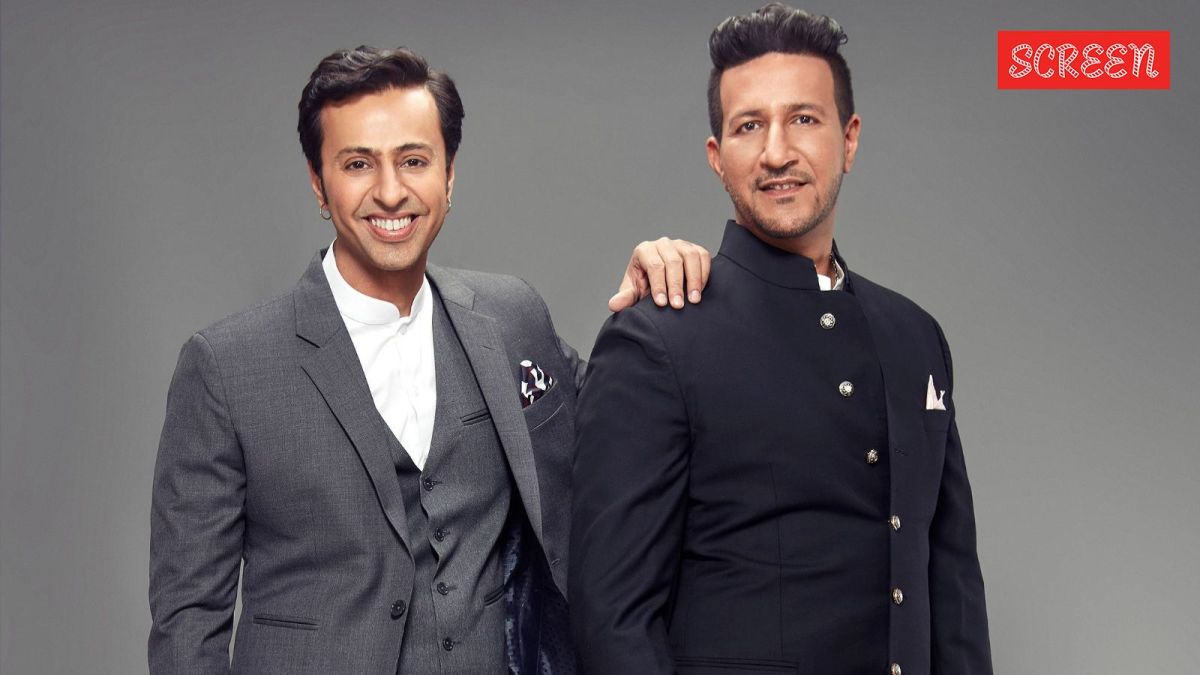Click here to follow Screen Digital on YouTube and stay updated with the latest from the world of cinema.

A glance through the discography of composer duo Salim–Sulaiman is enough to realize how significantly they shaped the sonic identity of Hindi cinema from the mid-2000s to the early 2010s. Their music shaped the soundscape of a generation, particularly under the banners of Yash Raj Films and Dharma Productions. But what also stands out is the range of filmmakers they’ve worked with, from Ram Gopal Varma and Nagesh Kukunoor to Aditya Chopra and Madhur Bhandarkar.
A constant presence across much of this music was lyricist Jaideep Sahni. Whether it was Aaja Nachle, Rab Ne Bana Di Jodi, Chak De! India, or Rocket Singh, the trio of Sahni and the Merchant brothers created memorable and lasting work. Explaining their creative dynamic, Sulaiman said, “Jaideep is a great lyric writer, he was attached to Yash Raj back then. Very innovative guy, always writing things which were out of the box. For example, Chak De, the title track of the film, was actually imagined by him as Nike’s advertising slogan — Just Do It? So that was the thought process of him writing those lyrics, and his words were always easy, and very fun to work with. That’s why the collaboration was great.”
Their ability to interpret briefs intuitively also helped them craft “Aashayein” in Iqbal, another inspirational sports anthem that continues to endure. According to Salim Merchant, “It was very easy. He said he wanted something hopeful, so we just translated that to Hindi and it became Aashayein.” They applied a similar process to “Haule Haule” from Rab Ne Bana Di Jodi. “We just got hold of the moment that Adi was trying to narrate to us, and usually it is in the narration we pick up the line from,” said Sulaiman Merchant. Another standout from the same film was “Phir Milenge Chalte Chalte”, a tribute to the golden age of Hindi film romance.
“So, for example, he said to us that he wants to start with Raj Kapoor. So we used his lines from songs, in fact a bit of melody from those songs as well but in our own style. So the intention was trying to capture that era but also keeping up with contemporary times,” Sulaiman added.
Despite their success and the continued relevance of their older work, the duo expressed concern about the current state of music in Bollywood. Salim said, “I really miss good stories. Everything starts from there. There are not even good stories anymore. Where are movies like Chak De, Kurbaan, Aaja Nachle, Rocket Singh? Those are the movies we made once. Where are they now? Forget about as a composer, as a viewer, I miss watching great cinema coming from the industry. I would really like it if we make more films like 12th Fail.”
Sulaiman echoed the sentiment, pointing to the shift in the function of music in films today. “In today’s landscape, there is no room for a song like ‘O Re Piya’. Because the kinds of films that are coming out, they don’t have the requirement of music like that. Now everything is like capture a club, capture a party, or otherwise they are travel songs, or songs used over a montage.” Salim agreed, adding, “Honestly, in today’s time, if we make a song like ‘O Re Piya’, we would think twice before giving it to a movie. We would release it on our own. Because it would simply get wasted in the movie.”
The conversation ended on a rather reflective note, just before the duo took the stage for their debut performance at Phoenix Market City in Kurla, Mumbai, which seems to have become a premier destination for music concerts lately. No points for guessing that they had the audience on their feet, reminding everyone of what Bollywood music once used to sound like. No points for guessing what their concert was officially titled.
Click here to follow Screen Digital on YouTube and stay updated with the latest from the world of cinema.